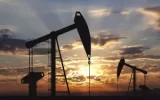Middle East oil companies at the top of the world

According to the exclusive report of Energy Press, quoted by the Transnational website, the oil companies of the Middle East have occupied an important position in the energy industry in recent years, and on the other hand, they are not only among the major decision makers of this industry, but they have shown that their approaches in this direction changed so that they can get a separate position in history for themselves.
Saudi Arabia’s national oil company, Aramco, is witness to a major shift in the control of world oil in recent decades: the unstoppable rise of national oil companies (NOCs) owned by Middle Eastern governments, China and Russia, and other major oil-producing countries in the Global South. are managed Collectively, these companies have now become large and diversified companies that outpace Western megacorporations in key metrics, including oil production, reserves, market value and export volumes.
The purpose of this note is to examine the role and weight of the six Arab countries of the Persian Gulf (Saudi Arabia, Kuwait, United Arab Emirates, Qatar, Bahrain and Oman) in the world oil industry. In early 2023, the world’s largest private oil and gas companies began publishing their financial results for 2022. ExxonMobil led the way by registering the highest profit in the company’s history with $55.7 billion. After that, Shell, the British-Dutch company, reached a historic milestone in its 115-year history, with a profit of nearly $44 billion, more than double its 2021 revenue. In total, the five leading Western oil companies—ExxonMobil, Shell, Chevron, BP and Total Energy—reported a combined profit of $200 billion, or $23 million per hour from 2022.
In the same year, ten major climate-related disasters were estimated to have cost the world about $170 billion, including $30 billion in devastating floods in Pakistan that killed more than 1,700 people and displaced more than 7 million. did With about half of ExxonMobil’s 2022 profits easily covering the costs of the Pakistan disaster, the real winners and losers of the climate emergency couldn’t be clearer.
But on March 12, 2023, this record-breaking profit was overshadowed by the release of another set of financial results: Saudi Arabia’s national oil company Aramco. At just over $161 billion, Aramco’s 2022 profit not only exceeded the combined results of Shell, BP, ExxonMobil and Chevron, but was the largest profit recorded by any company in the world in any business.
Aramco’s results underscored a major shift in global oil control in recent decades: the unstoppable rise of national oil companies (NOCs) run by governments in the Middle East, China, Russia and other major oil-producing countries in the Global South.
When thinking about these changes in the global oil trade, it is important to recognize that crude oil is a commodity that has little practical use before it is converted into a variety of liquid fuels or raw materials. For this reason, when charting emerging patterns of control in petroleum, it is critical to consider the “downstream” part of the petroleum industry, particularly the all-important refining stage. Today, the long-standing dominance of the West in refining has been significantly eroded, and Middle Eastern companies have been able to take the brunt of the refining sector.
Tags:oil
- Comments sent by you will be published after approval by site administrators.
- Comments that contain slander will not be published.
- Comments that are not in Persian or not related to the news will not be published.

Comments
Total comments : 0 Awaiting review : 0 Date: 0